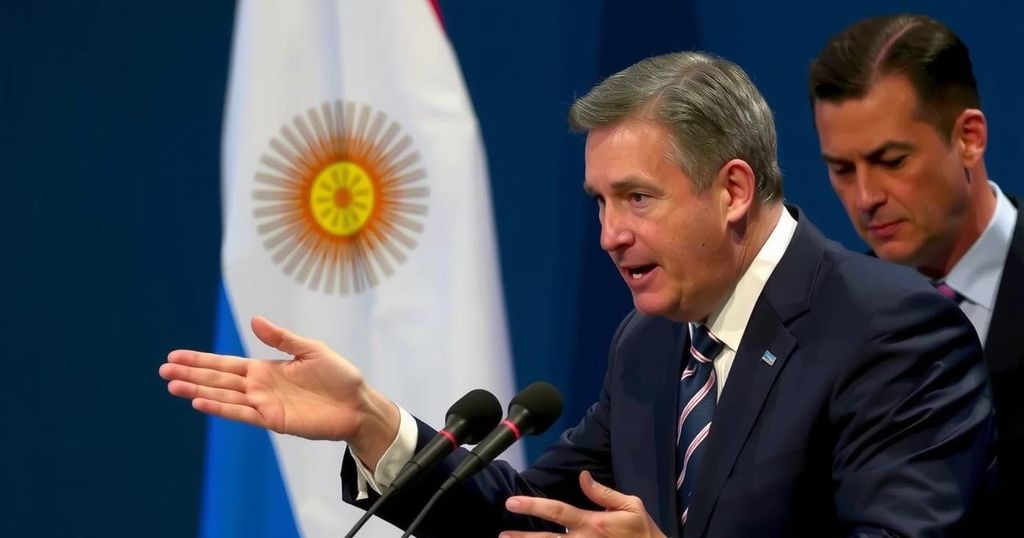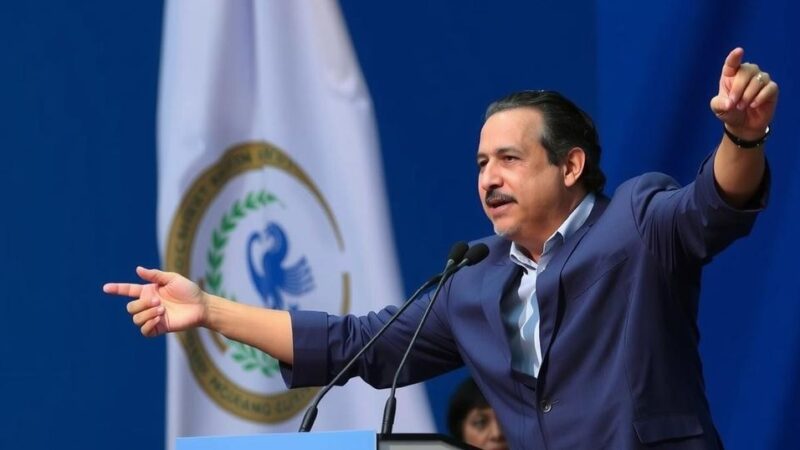On Wednesday, President Javier Milei of Argentina dismissed Foreign Affairs Minister Diana Mondino after a U.N. vote favoring the lifting of the U.S. embargo on Cuba. The dismissal is indicative of Milei’s foreign policy that aligns closely with U.S. and Israeli interests while opposing regimes that violate human rights. This decision follows a series of controversies surrounding Mondino during her tenure.
On Wednesday, President Javier Milei of Argentina terminated his foreign affairs minister, Diana Mondino, following the country’s vote at the United Nations General Assembly that favored lifting the United States’ economic embargo on Cuba. The decision was announced by Milei’s spokesman, Manuel Adorni, who replaced Mondino with Gerardo Werthein, Argentina’s ambassador to the U.S. While the spokesperson did not specify the reasons for the dismissal, it was made public that it directly related to the U.N. vote. The President’s office affirmed that, despite the vote, Argentina remains explicitly opposed to the Cuban government and committed to upholding a foreign policy that condemns regimes violating human rights and personal freedoms. During the assembly, 187 nations, including Argentina, supported a resolution that condemned the U.S. embargo against Cuba, with only the United States and Israel opposing it. Since taking office in December 2023, Milei has shifted Argentina’s foreign policy to closely align with U.S. and Israeli interests, notably endorsing the policies of Israeli Prime Minister Benjamin Netanyahu amid ongoing violence in Gaza. Mondino’s tenure faced criticism, including a recent incident where her office mistakenly referred to the Falkland Islands as “Falklands” instead of their proper name “Malvinas,” which is used in Argentina. Moreover, her diplomatic visit to China was marred by controversy after she remarked that “all Chinese look the same,” an insensitive comment that drew significant backlash. In light of the recent developments, the Milei administration announced plans to conduct an internal audit of the Foreign Relations Ministry to identify individuals advocating positions contrary to the administration’s interpretation of freedom.
The dismissal of the foreign minister comes in a context where Argentina’s political landscape under President Javier Milei has seen a significant turn towards aligning with American geopolitical interests. The voting trend at the U.N. regarding the embargo on Cuba has historical implications rooted in decades of political stances taken by countries in Latin America concerning both U.S. policy and Cuba’s communist government. The recent actions illustrate not only the internal pressures within Milei’s government but also the broader diplomatic relationships that Argentina is navigating amid fluctuating alliances in the region. Milei’s administration has publicly condemned regimes that breach human rights, marking a departure from previous Argentine foreign policy positions that have been more sympathetic to leftist governments. Moreover, Milei’s alignment with right-leaning policies contrasts sharply with the regional stance of many other Latin American nations, complicating diplomatic relations and Argentina’s position within the continent’s geopolitical landscape.
The recent firing of Foreign Minister Diana Mondino by President Javier Milei highlights the ongoing tension between Argentina’s foreign policy and its historical stance towards Cuba and broader geopolitical alignments. The vote against the U.S. embargo reflects a moment of discord in the Milei administration, which has sought to strengthen ties with the U.S. and Israel while denouncing elements of leftist governance in the region. The implications of this shift not only affect Argentina’s diplomatic relations but also bear significant weight on the country’s internal political dynamics and international perception.
Original Source: www.mymotherlode.com






